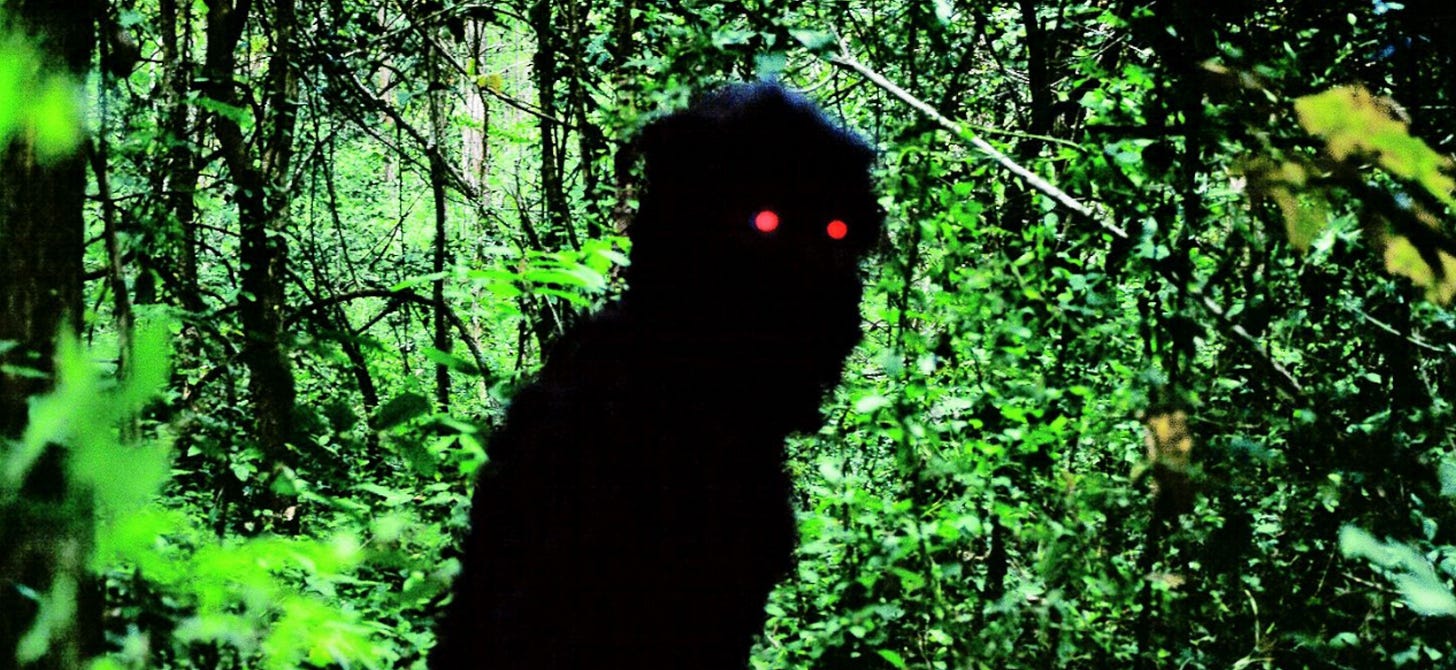Final Dispatch: Hope & Scene—Five Modern Asian Masterpieces That Endure
To Ted Hope, Sophie, and Artists Who Live to See the World Change
This week's newsletter is dedicated to the legendary film producer
, and author of Substack’s own Hope for Film—and , who brings her advanced background in film marketing to weekly analyses of industry issues on That Final Scene. For those unfamiliar, Ted Hope is a pivotal figure in independent cinema, having produced groundbreaking early films by visionary directors such as Sean Baker and Alejandro G. Iñárritu—both now Oscar-crowned. Sophie, meanwhile, has become a trusted voice in film and television criticism, thoughtfully shaping cultural conversations through her insightful analysis and vibrant community engagement, amassing an impressive following of over 70,000 on Instagram.Think of it as a sequence of five essential movements1—each film a stretch of the imagination to a place likely foreign to readers, nonetheless very real. Consider it a test of patience or sensuality, or endurance. This list concentrates on modern classics, yes, but each one inherits the language of its own cinematic canon and then dares to bend or even fracture it. It’s also, for me, a way to honour the little guys like us, fiction writers or poets, in hard times. The films that don’t get algorithmic love. These are movies that reshaped my artistic ambitions and deepened my fascination with Asia as a real and mythic place.
1. Farewell My Concubine (Chen Kaige)
A grand, tragic epic that spans five decades of Chinese history, Farewell My Concubine follows two Peking opera actors whose bond—complicated, intense, and often unbearable—is tested by shifting political tides and personal betrayals. At its heart is the character of Dieyi, played with haunting fragility by Leslie Cheung, whose devotion to art and to his lifelong stage partner becomes both salvation and doom. The film moves from the lushness of early Republican China through the Cultural Revolution with a lyrical but unflinching eye, exposing how beauty and cruelty can coexist within the same gesture.
I first watched it years ago, sleepless in Hanoi, but I returned to it later in Lijiang—one of China’s most traditional towns, where cobbled lanes and curved rooftops preserve some sense of ancient life. I was renting a room above a goat cheese seller. After the brutal train ride, it was just me and the flickering light. The performances, the music, the costumes, the heartbreak—they reminded me that art is never just an escape. It's a battlefield, a refuge, a form of bondage.
For anyone who doubts that cinema can bear the weight of history, Farewell My Concubine stands as proof. The final scene, where performance and reality blur, is among the most devastating closings in world cinema—it cuts across time, political cycles, and the fault lines of love and identity.
2. Uncle Boonmee Who Can Recall His Past Lives (Apichatpong Weerasethakul)
Apichatpong Weerasethakul, a Palme d’Or winner, merges Ozu’s gentle realism with David Lynch’s “dream logic” surrealism. I once had the chance to present an hour-long lecture on his work at the Southeast Asian Conference for Comparative Literature—one of the proudest moments of my academic life. Most speakers were asked to censor or soften their interpretations, but for some reason, I was allowed to go ahead as written. I discussed Uncle Boonmee, Syndromes and a Century, and Cemetery of Splendour, framing them as works that dissolve the linear frameworks of modern storytelling and instead evoke a cinema of haunting, memory, and spirit—stories that drift between realms, where people are visited by their past selves as often as by ghosts. It is, frankly, a tragedy that Apichatpong remains under-recognized in his own country, where distribution and visibility are still shaped by politics and market (il)logic.
Watching Uncle Boonmee is like to stepping into a lush dreamscape—a hypnotic exploration of reincarnation and memory. The plot unfolds with dream logic: a man nearing death retreats to the countryside, where he is visited by ghosts from his past—his deceased wife and his long-lost son, who returns in the form of a red-eyed monkey spirit. Through slow, meditative scenes, we drift between this world and the next, between reality and memory.
3. A Brighter Summer Day (Edward Yang)
Edward Yang’s masterpiece, lovingly rediscovered by Martin Scorsese. First seen on the Criterion Channel, it's my current all-time favourite film. Set in 1960s Taipei, it follows a teenage boy named Xiao Si’r as he navigates family pressure, schoolyard gangs, first love, and the growing unease of political exile and identity crisis in a city changing faster than anyone can understand. What begins as a coming-of-age story swells into something tragic and Shakespearean in scale. This four-hour epic never feels bloated, drawing emotional weight from the most minor moments. It resonates deeply with anyone who feels the pressure of history bearing down on the quiet chaos of youth.
Taipei holds personal resonance for me—I met my wife there. Taiwan is such a literary place: more than 70% of its population reads at least one book a month, and independent bookstores thrive despite the dominance of digital platforms. It's a place where narrative still feels central to identity. Watching this film in that context, I couldn’t help but feel that I was glimpsing something essential not just about the city, but about how memory itself is structured: not in grand events, but in fleeting gestures, misheard conversations, and the weight of silence between generations.
4. Fallen Angels (Wong Kar Wai)
For many—myself emphatically included—Wong Kar Wai was the seductive lure to Asia’s neon-drenched streets. I first saw Fallen Angels in my embarrassing beatnik days in Saigon, projected onto a screen in a low-lit room where everyone seemed completely turned on—by the images, the music, the movement. The air was humid, alive with the charge of recognition. If there's such a thing as a city being sexy, it was Hong Kong the first time I visited: fast, unknowable, indifferent to your gaze.
The film itself follows two loosely connected stories: a hitman longing for a way out of his life of crime and his elusive female handler who falls in love with him from afar; and a mute ex-con who invades the lives of strangers, accompanied by a manic, lovesick woman who claims to be his girlfriend. The narrative is fragmented, stylized, and brimming with sensuality and loneliness. Shot with disorienting wide angles and slow shutter speeds, it captures Hong Kong at night as a fever dream. It’s the sexiest film WKW ever made, and a gateway into a geography of yearning I once fantasized into reality. WKW inspired the imagery of so many of my poems.
5. An Elephant Sitting Still (Hu Bo)
A rebuke to hollow cinematic tricks, Hu Bo’s fiercely independent vision cost a mere $30,000 yet delivers scenes of raw, breathtaking intensity. Set over the course of one bleak day in a northern Chinese city, the film follows four characters—a bullied teenager, a girl caught in a scandal, an elderly man displaced from his home, and a young man on the run after pushing a bully down the stairs. All of them are drawn toward a rumour: that in the city of Manzhouli, a circus elephant sits still, unmoved by the world. It’s a desperate, poetic quest for stillness amid the noise. At four hours, the film is relentless, uncompromising, and possibly the most astonishingly bold work of international indie cinema I’ve ever seen. It’s also Hu Bo’s only film—he took his life shortly after completing it, and that grief lingers in every frame.
***
Treat each as an invitation into a transformative encounter . . .
If there's a unifying element to this list, though, it's how they each interrogate time: how it stretches, stutters, haunts, or swells.
Hu Bo, director of An Elephant Sitting Still, studied under the great Béla Tarr, and you can feel the influence in every long take—each one not indulgent but insistent. The camera doesn't cut because the characters can't escape. It's a purposeful stillness, a moral decision to endure discomfort rather than flinch from it. These works, across media, ask for something deeper than attention. They ask for your complicity in the act of witnessing.
These are the films I bring with me from twelve years (mainly in Vietnam, China, and South Korea). They trace a loose cartography of influence—fragments of style, narrative, and image that lodged themselves in me.
They’ve shaped the writer I’ve become today—less certain, more patient. Willing to sit still, even if only for twelve minutes time, even if it took me twelve years.
Though, honestly: As my move from Vietnam back to Canada nears, this edition feels very bittersweet—not just a goodbye to a place I’ve come to love, but a mourning of everything I’m leaving behind: there were periods of reckless, irresponsible spending—trips taken with money I didn’t really have, all in pursuit of seeing as much of a continent as I could, as if I were gathering reference points for stories (and I was). The unspoken hope was that I could return to Canada not just older, but finished, ready-made, like a novelist or screenwriter already halfway cast in the role.
Now I'm on Substack. Least expensive route, widest reach . . . Even
might see this footnote: “Hey Ted! I write Fiction too, and I would love to work with any interested independent filmmakers! (Hope you enjoyed this list).”










Dear Brock,
I can't begin to tell you how deeply I enjoyed reading your every word here.
I am so touched by your attention to incredibly soulful art through cinema, camera, the electricity of a city, the fragility and strength of the human spirit. And how you took the opportunity to tie so much of these incredible works--and all they conjure for you personally--into the man you are today, really it is breathtaking to me.
Your mind and your commitment to honoring the beauty of the obscure, I treasure what you share.
Thank you so sincerely. I'm thinking of you.
Thanks for the kind words, B! I just read this in Hou Hsiao-hsien’s cafe in Taipei so fitting setting for a well-served meal. I look forward to reading more.